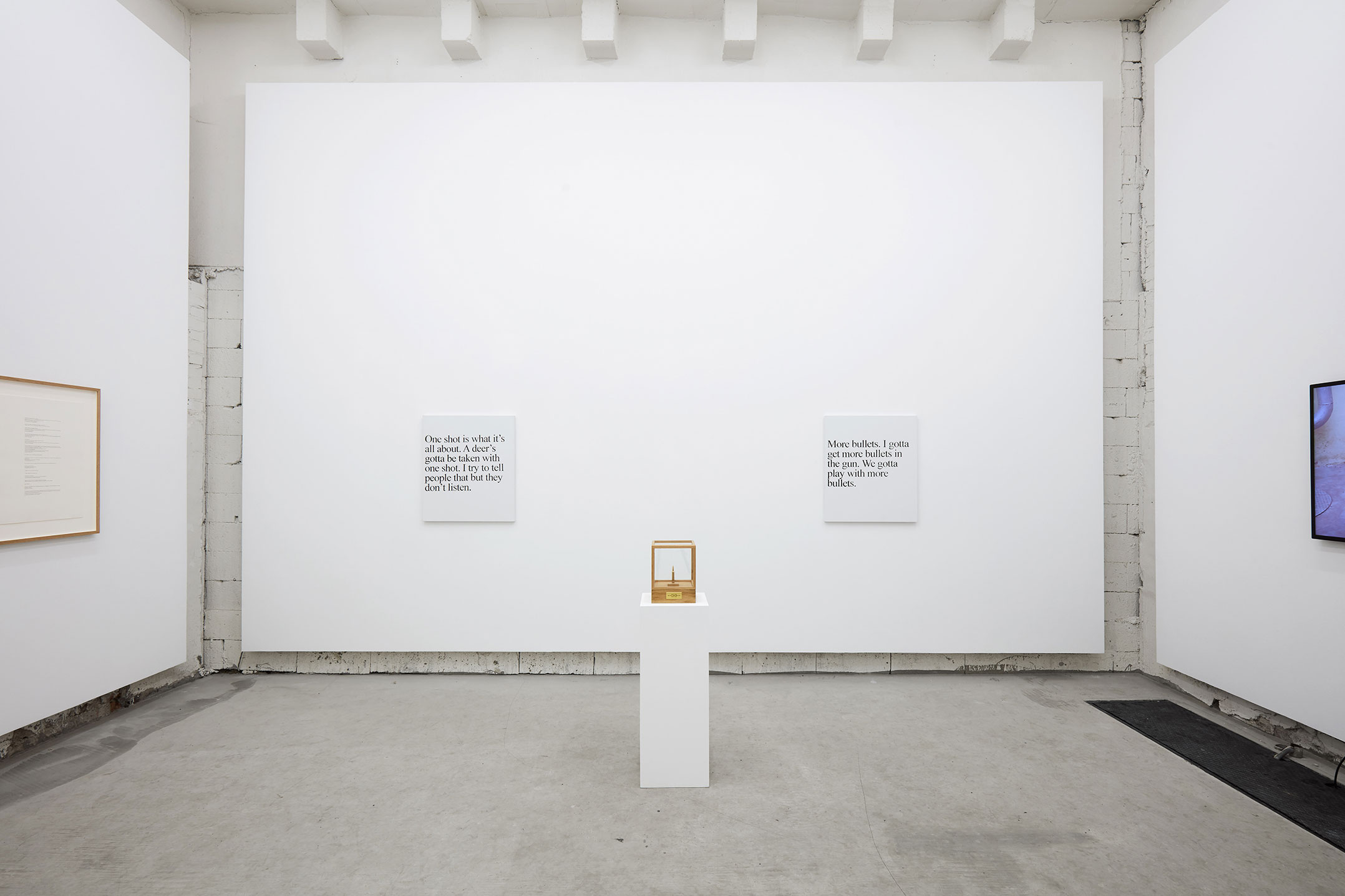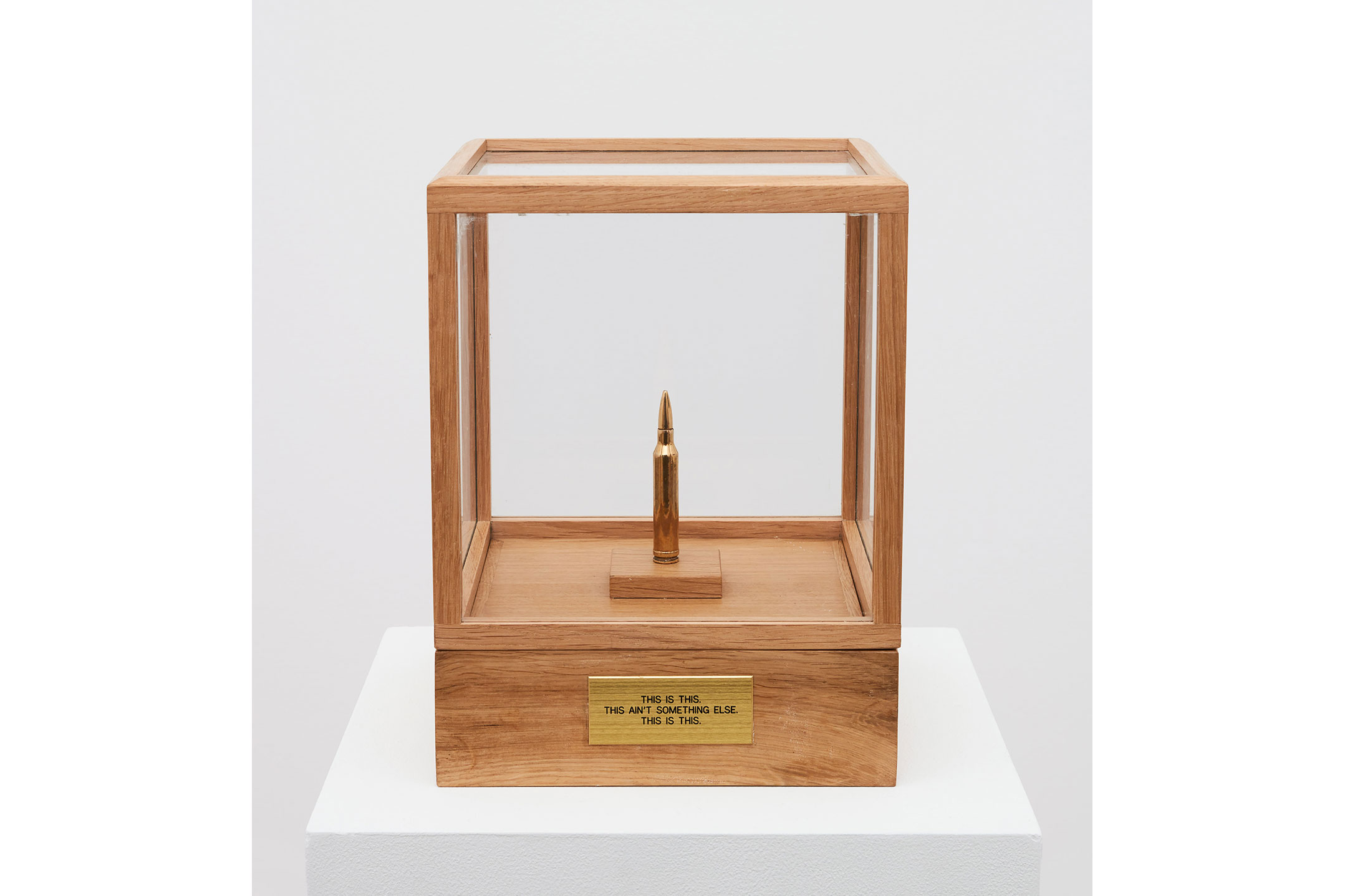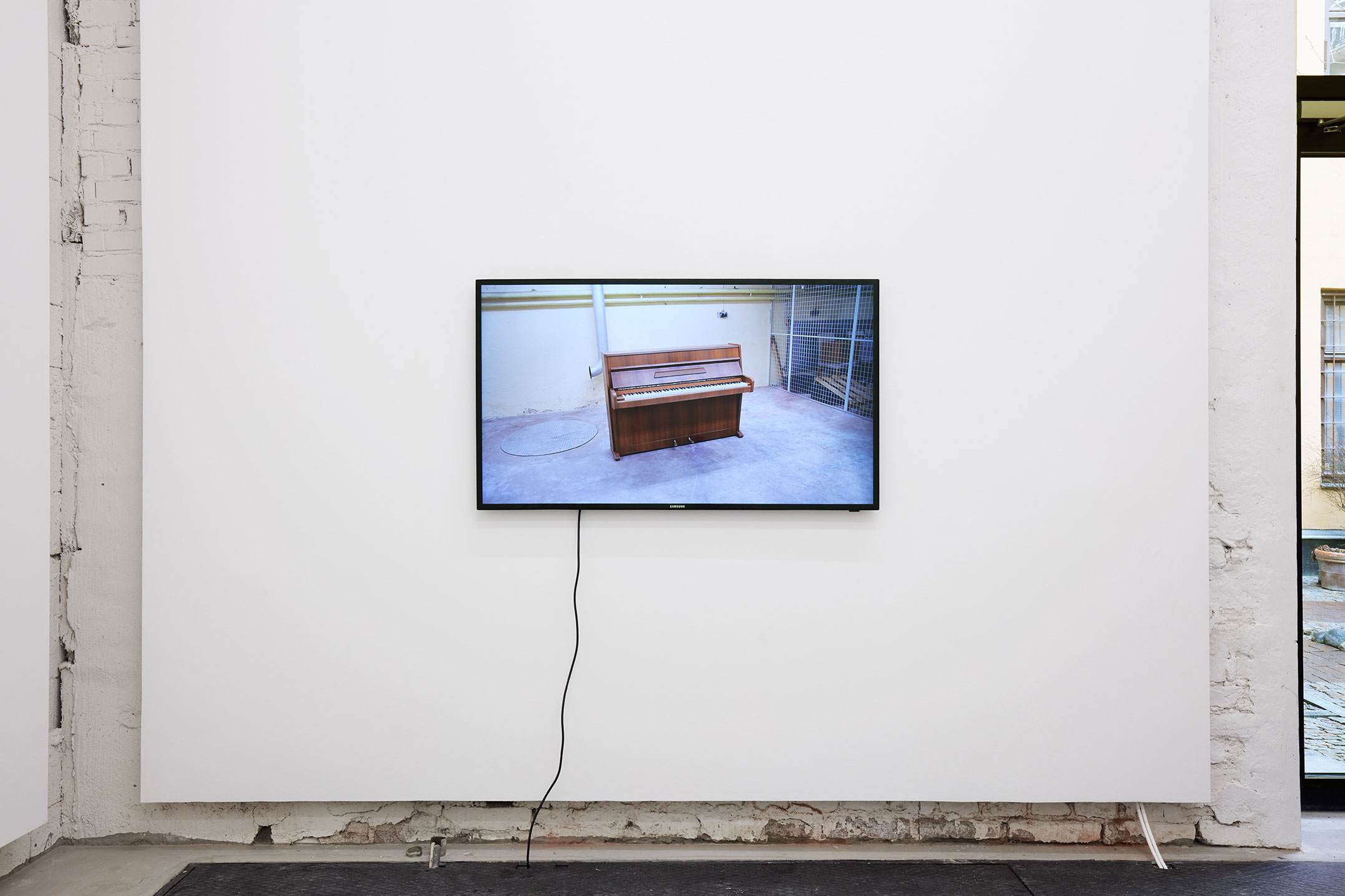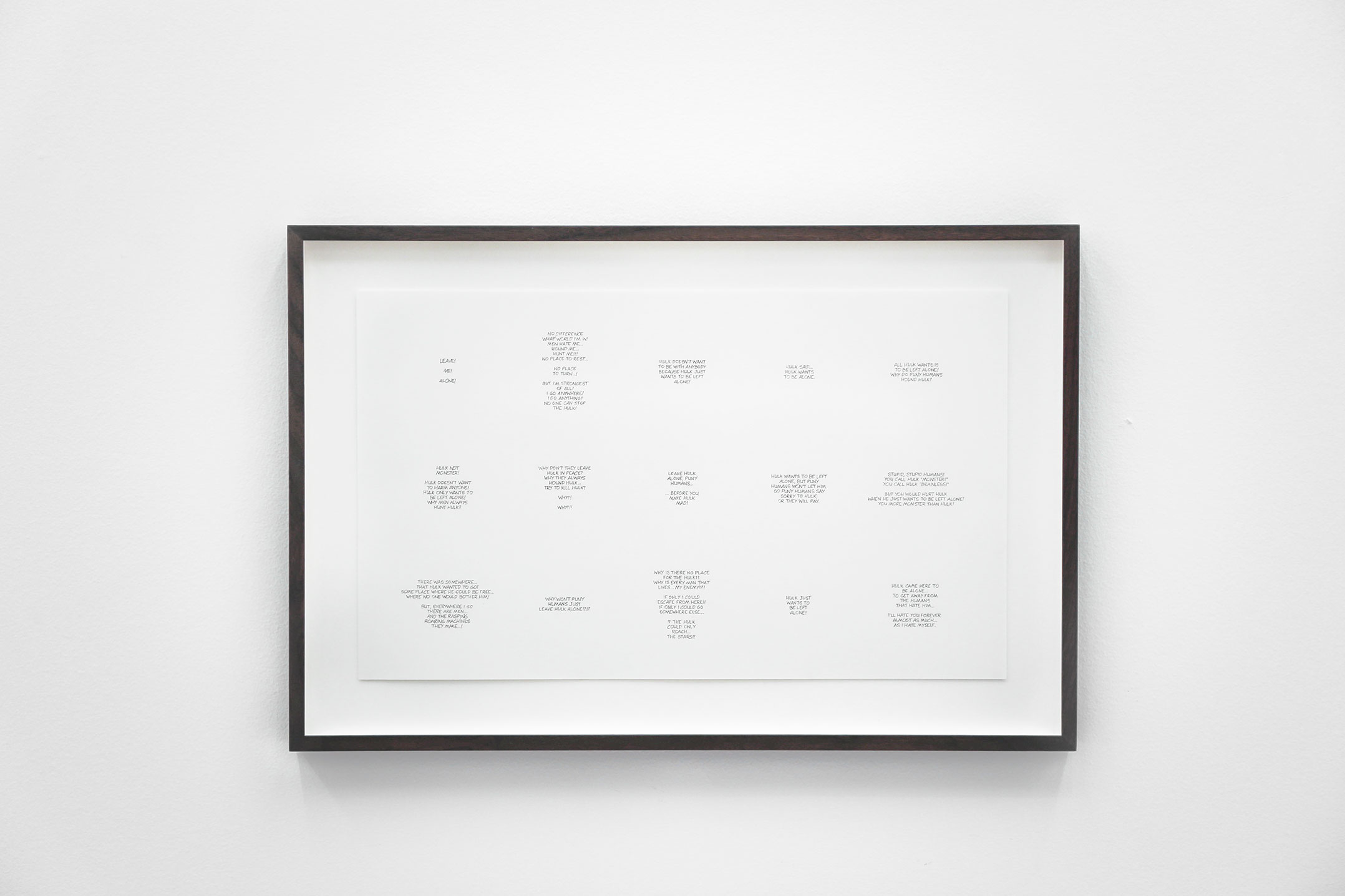The Strongest Man in the World Is He Who Stands Most Alone
Exhibition text by Astrid Grelz, Stene Projects:
Oscar Guermouche is a man that is obsessed with men. Maybe: a man obsessed with manlieness. Or simply – an artist interested in the gender role he was involuntary ascribed at birth. Either way, Guermouche’s work is tinged with everything that is usually attributed to male identity. He plays with the rational and mathematical, harsh and violent, forceful and mechanical. Nothing of softness, sensitivity or organismic mysticism is allowed to intervene and pollute the sea of testosterone. His medium varies but his technique remains that of sampling – copying quotes and images from various sources like television, film, books, and comic strips. He cuts with sharp scissors from the history of patriarchy, reproducing and juxtaposing the fragments into coherent exhibitional collages.
The exhibition The Strongest Man in the World Is He Who Stands Most Alone at Stene Projects is no exception. The title is extracted from Henrik Ibsen’s En folkefiende (1882, An Enemy of the People), whereas the art works are mainly influenced by popular culture: the character Rambo, the movie The Deer Hunter and the TV-show The Incredible Hulk. Gathered under three titles, the beholder encounters nine pieces: three drawings, two movie stills, a sculpture, two oil paintings and a video work. The three work series constitute three different stories, intertwined yet speaking with somewhat separate voices.
The fact that Guermouche often works with language is by no means a coincidence. Language is constructed in the interplay between self and societal structures – it is one of the most influential aspects of our conception of identity, including gender. The textual fragments are accordingly expressions of a typically manly coded language. In what might at first seem as ironic clichés of male community and macho culture, it is thus possible to find a strain of the most sincere severity: Guermouche demonstrates the risks of excessive identification and agency. Where do we draw the line between celebrated potency and potential danger? Between the authoritarian leader and the dictator, the hero and the monster? And so in the end, his argument comes down to a question of gender dominance, the relationship between individual and community or the notion of self-regulation. That is – a question of power.
Solo exhibition at Stene Projects,
Stockholm, 2016.
-
“You Wouldn’t Like Me When I’m Angry (I)”, 2016.
C-print, 11 cm x 20 cm.
Still image from the TV series The Incredible Hulk.
“You Wouldn’t Like Me When I’m Angry (II)”, 2016.
Ink on paper, 30 cm x 50 cm.
Texts from the comic book series The Incredible Hulk.
“You Wouldn’t Like Me When I’m Angry (III)”, 2016.
HD video, 2:50 min.
Music from the TV series The Incredible Hulk.
-
“The Hunter and the Deer (The Hunter)”, 2016.
Oil on canvas, 70 cm x 60 cm.
Text from The Deer Hunter.
“The Hunter and the Deer (The Deer)”, 2016.
Oil on canvas, 70 cm x 60 cm.
Text from The Deer Hunter.
“The Hunter and the Deer (The Bullet)”, 2015.
Bronze, ca 7,2 cm x 1,3 cm.
Oak wood, glass, brass, ca 26,5 cm x 20 cm x 20 cm.
Texts from The Deer Hunter:
– This is this. This ain’t something else. This is this.
– I think you’re a fucking faggot.
– You gonna shoot me? Huh?
– No one ever knows what the fuck you’re talking about.
-
“When Johnny Comes Marching Home (Home)”, 2016.
C-print, 14 cm cm x 20 cm.
Still image from Rambo.
“When Johnny Comes Marching Home (The Homecoming)”, 2016.
Ink on paper, 59,4 cm x 42 cm.
Texts from First Blood.
“When Johnny Comes Marching Home (Johnny)”, 2016.
Ink on paper, 59,4 cm x 42 cm.
Texts from First Blood, Rambo (First Blood Part II), Rambo, “Rambo and Me”, speeches by Ronald Reagan, Une Saison en Enfer, “Verlaine Shot Rimbaud”, Johnny Got His Gun, “Over There”, “Yankee Doodle”, The Adventures of Uncle Sam in Search After His Lost Honor, “When Johnny Comes Marching Home”, The Way of the Zen, Zen in the Art of Archery, Hoyt Archery’s website, interviews with Sylvester Stallone, Rocky IV, The Expendables, To Hell and Back, The Oxford English Dictionary, military recruitment posters, movie taglines, and various encyclopedias.
Courtesy Public Art Agency Sweden (Statens konstråd).
Date
December 12, 2019









